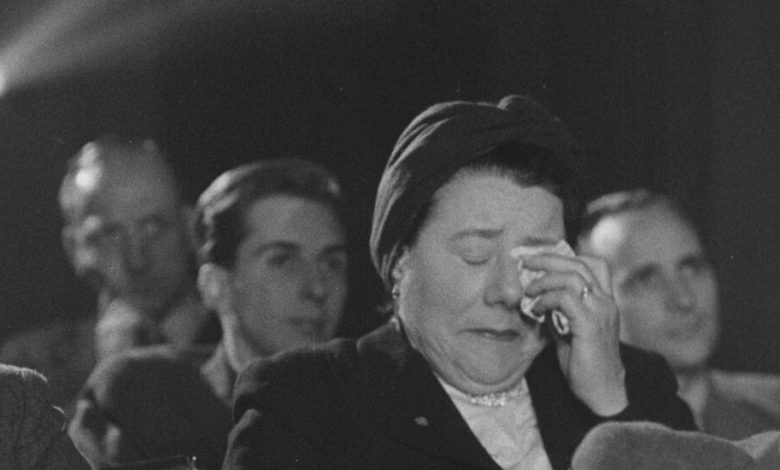Bring Back the Tear-Jerker!

Tears are sacred. They express sadness, communicate joy, signal need and expunge stress. The very act of crying offers us more than just release; it can offer us clarity.
Yet we live in an era when public crying is not just undervalued but actively mocked. Collective displays of sadness are dismissed as empty posturing, and emotional breakdowns are turned instantly into memes. The alienation and isolation of online life has made expressing shared sadness nearly impossible.
Which is why we need to bring back the tear-jerker.
Remember tear-jerkers? An entire category of movie dedicated to enlisting Hollywood’s best talent in an effort to make you bawl unashamedly? You might know them instead as weepers or weepies — and as a genre they offered a beloved and widely embraced means for communal emotional catharsis, at the theater, in the dark.
Tear-jerkers have existed throughout Hollywood’s history — movies were making audiences cry even before they could make a sound — but as a prestige genre they hit their peak in the 1970s and 1980s, climaxing with 1983’s “Terms of Endearment,” which won an Oscar for best picture. (“Anyone who goes to this film expecting a light comic diversion had better bring along at least four hankies for the hospital scenes,” wrote Janet Maslin in The Times.) The film featured several emotionally devastating moments, including the one mentioned by Ms. Maslin, in which a mother dying of cancer, played by Debra Winger, has her last conversation with her school-age sons.

In “Terms of Endearment,” a dying woman played by Debra Winger says goodbye to her young sons.
The heyday of the prestige weepie brought such cryfests as “Kramer vs. Kramer,” a wrenching tale of divorcing parents wrestling over their son; “Ordinary People,” about a family’s emotional collapse in the wake of a tragedy; “Field of Dreams,” the ultimate dad-cry about baseball and middle-aged reckoning; and of course “Beaches,” a heartbreaker about the death of a lifelong friend, complete with a chart-topping anthem. Even blockbuster films from this era, such as “E.T.” and “Top Gun,” dutifully included a mandatory gut-punch moment — hooking up a pale E.T. to a heart monitor; killing off Goose — designed to make audiences sob on cue. And we did.